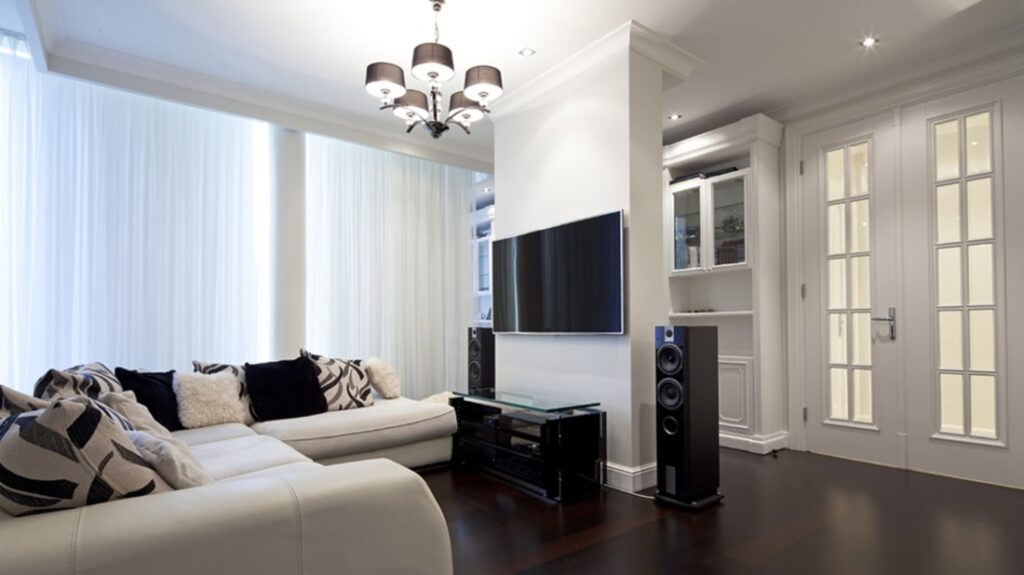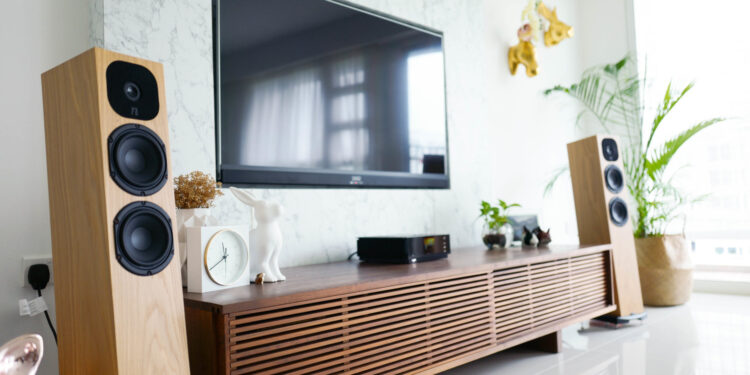Whether it’s music, movies, or some inspiring documentaries, a good dose of entertainment in your home comes with numerous benefits. Most importantly, it helps enhance comfort and relaxation as you have a good time alone or with those you love. But this is not always the case because, more often than not, your enjoyment will depend on your sound system setup.
Now, if you have a large room, the wrong sound setup will result in muddy, distorted, or echoing sounds. Your speakers will be inaudible, or you might have a lot of echo in the room due to a high reverberation time. All these factors affect the clarity and audibility of sound in your home. Of course, you don’t want your home to sound like a hall; neither do you want it to be too noisy.
Are you looking to get superior sound despite having a large room? From adding speakers to installing an equalizer, or soundproofing your home, here are some helpful tips.
Add or Replace Speakers
When looking to maximize sound in a large room, one of the first things to do is to assess your speakers. If the sound is too weak or low, you may need to add a few speakers. This could also mean replacing the entire speaker system with a new one. The good thing is that there are lots of options to pick from online, so you don’t have to leave your home’s comfort.
As a matter of fact, sometimes all you need is a decent set of headphones or a balanced multiroom Bluetooth speaker for your home. You can start by checking out Bang and Olufsen Speakers, who offer a variety of options to pick from based on your needs. While choosing home speakers, here are some tips you could find helpful:
- Usage
- Room size
- Speaker strength, output, or sensitivity in dB
- Does it match your décor?
- Your budget
- Floor vs. stand-mounted options
- Speaker brand
2. Consider Adding an Amplifier
An amplifier is a device designed to enhance the signal strength sent from your audio device to the speaker. RCA patch cables are usually used to connect an amplifier to the receiver to achieve louder and more powerful sound. Depending on its power wattage and output in and dB, some speakers can be connected directly to the amp. Power, impedance, and sensitivity are some of the crucial considerations when getting the right amplifier for your speaker, one that won’t blow up your speakers or lead to weak sound.

3. Consider Getting an Equalizer
If you use a stereo receiver, adding an equalizer lets you balance audio, control reverberation, and control the sound levels coming from your speaker. For instance, you can isolate sound by raising the volume of high tones and lowering bass signals. You may not need one if you have a home theatre system in your home. Nonetheless, you can pair an equalizer with an amp, tuner, or equalizer by connecting them using patch cables.
4. Position Your Speakers Well
Last but not least, even the most powerful speaker may not perform well if not positioned right. This is especially true for bigger rooms with too much stuff or a lot of empty space. The followingObserve Proper Speaker Distance – Speakers that are too close together often result in muddy sounds. When your speakers are placed too far from one another, they may also lead to unbalanced sound. You may also want to move your speakers a bit, making sure they’re at least a yard from the closest wall.
- Remove obstructions – If there are objects between your ears and speakers, you may not get the best sound. This is because objects reflect sound, thus affecting your audio experience.
- Placement height – Placing your speakers at the ideal height enhances audibility. Especially for tweeters and high-tone speakers, this should be somewhere near your ear height when seated in a room.
Finally, another great way to achieve that powerful quality sound in a large room is to ensure good room acoustics. This could mean adding absorption panels, which are essentially fiberglass-containing frames coated with fabric. When used well, they can help enrich your room’s sound experience without leaving you with a “dead” room!





